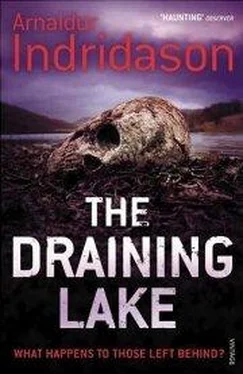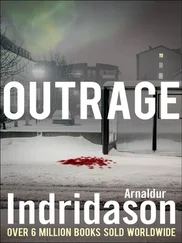He belonged to the oppressed masses himself. He was swept along by the fervour and the eloquence and the just notion that all men should be equal. The bosses should work alongside the labourers in the factory. Down with the class system! He had a genuine and steadfast faith in socialism. He felt the need to serve the cause, to persuade others and to fight for all the underprivileged, the workers and the oppressed.
Arise ye workers from your slumbers …
He took full part in discussions at the meetings and read what the youth movement recommended. There was plenty to be found in libraries and bookshops. He wanted to leave his mark. In his heart he knew that he was right. Much of what he had heard from the young socialist movement filled him with a sense of justice.
Gradually he learned the answers to questions about dialectical materialism, the class struggle as the vehicle of history, about capitalism and the proletariat, and he trained himself to garnish his vocabulary with phrases from the great revolutionary thinkers as he read more and became increasingly inspired. Before long he had surpassed his comrades in Marxist theory and rhetoric and caught the eye of the youth-movement leaders. Elections to party posts and the drafting of resolutions were important activities and he was asked whether he wanted to join the party council. He was then eighteen. They had founded a society at his school called “The Red Flag’. His father decided that he should have the benefit of an education, the only one of the four children. For that, he was forever grateful to his father.
In spite of everything.
The youth movement published a broadsheet and held regular meetings. The chairman was even invited to Moscow and came back full of tales about the workers” state. Such magnificent development. People were so happy. Their every need catered for. The cooperatives and centralised economy promised unprecedented progress. Post-war reconstruction outstripped all expectations. Factories sprouted up, owned and run by the state, by the people themselves. New residential districts were being built in the suburbs. All medical services were free. Everything they had read, everything they had heard, was true. Every word of it. O, what times!
Others had been to the Soviet Union and described a different experience. The young socialists remained unmoved. The critics were servants of capitalism. They had betrayed the cause, the struggle for a fair society.
The Red Flag meetings were well attended and they managed to draft in more and more members. He was unanimously elected chairman of the society and was soon noticed by the Socialist Party’s top brass. In his final year at school it was clear that he was future leadership material.
He turned from the window and walked over to the photograph hanging above the piano, taken at the school-leaving ceremony. He looked at the faces under the traditional white caps. The male students in front of the school building wearing black suits, the girls in dresses. The sun was shining and their white caps glittered. He was second-best student of the year. Only a hair’s breadth from coming top of the school. He stroked his hand over the photograph. He missed those years. Missed the time when his conviction had been so strong that nothing could break it.
In his last year at school he was offered a job on the party paper. In his summer vacation he had worked as a docker, got to know the labourers and deckhands, and talked politics with them. Many of them were outright reactionaries and they called him “the communist’. He was interested in journalism and knew that the paper was one of the pillars of the party. Before he started there, the chairman of the youth movement took him to the deputy leader’s house. The deputy leader, a skinny man, sat in a deep armchair polishing his spectacles with a handkerchief and telling them about the establishment of a socialist state in Iceland. Everything that soft voice said was so true and so right that a chill ran down his spine as he sat in the little living room, devouring every word.
He was a good student. History, mathematics or any other subject came equally easily to him. Once a piece of knowledge entered his mind he retained it for instant recall. His memory and gift for study proved useful in journalism and he was a quick learner. He worked and thought fast, and could do long interviews without needing to jot down more than a few sentences. He knew that he was not an impartial reporter, but nor was anyone else in those days.
He had planned to enrol that autumn at the University of Iceland, but was asked to stay on at the paper for the winter. He didn’t need to think twice. In the middle of the winter the deputy leader invited him home. The East German Communist Party was offering places for several Icelandic students at the University of Leipzig; if he accepted one he would have to make his own way there but would be provided with board and lodging.
He had wanted to go to Eastern Europe or the Soviet Union to see the post-war reconstruction for himself. To travel, discover different cultures and learn languages. He wanted to see socialism in action. He had been considering applying to the University of Moscow and had still not made up his mind when he visited the deputy leader. Wiping his spectacles, the deputy leader said that studying in Leipzig was a unique opportunity for him to observe the workings of a communist state and train to serve his own country even better.
The deputy leader put on his glasses.
“And serve the cause,” he added. “You’ll like it there. Leipzig’s a historical city and has links with Icelandic culture. Halldor Laxness visited his friend the poet Johann Jonsson there. And Jon Arnason’s collection of folk tales was published by Hinrich Verlag of Leipzig in 1862.”
He nodded. He had read everything Laxness had written about socialism in Eastern Europe and admired his powers of persuasion.
The idea that he could go by ship and work his passage occurred to him. His uncle knew someone at the shipping company. Securing the passage was no problem. His family were ecstatic. None of them had been abroad, to say nothing of studying in another country. It would be such an adventure. They wrote to each other and telephoned to discuss the wonderful news. “He’ll turn out to be something,” people said. “It wouldn’t surprise me if he ended up in government!”
The first port of call was in the Faroe Islands, then Copenhagen, Rotterdam and Hamburg. From there he took the train to Berlin and slept the night at the railway station. The following day, at noon, he boarded a train to Leipzig. He knew that nobody would be there to welcome him. He had an address written on a note in his pocket and asked for directions when he reached his destination.
Sighing heavily, he stood in front of the school photo-graph, looking at the face of his friend from Leipzig. They had been in the same class at school. If only he had known then what would happen.
He wondered whether the police would ever discover the truth about the man in the lake. He consoled himself with the thought that it was such a long time ago and that what had happened no longer mattered.
No one cared about the man in the lake any more.
Forensics had erected a large tent over the skeleton. Elinborg stood outside it as she watched Erlendur and Sigurdur Oli hurrying across the dry bed of the lake towards her. It was late in the evening and the media had left. Traffic had increased around the lake after the find was reported, but had died down and the area was quiet again.
“Nice of you to find the time,” Elinborg said as they approached.
“Sigurdur had to stop for a hamburger on the way,” Erlendur grunted. “What’s going on?”
Читать дальше












